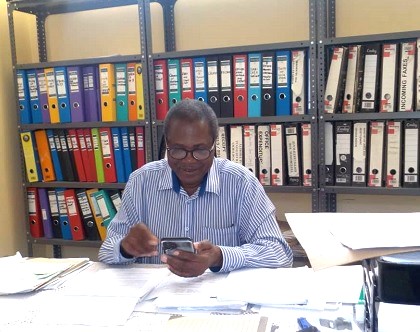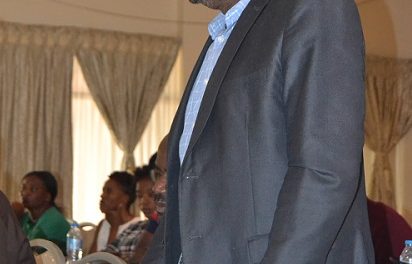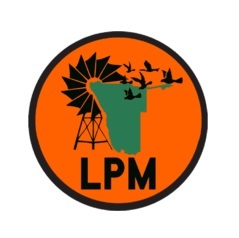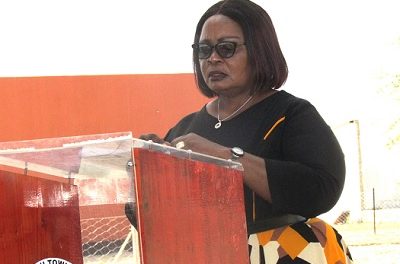By Elina-Ombili Shishaki |
The concept of access to information is not new to Uukwambi since Uukwambi Traditional Authority has long ago known that openness is a crucial tool to good decision-making.
This was said by Uukwambi Traditional Authority (UTA) on the Access to Information (ATI) Act.
ATI places an obligation on public institutions as well as private entities to promote transparency in their operations by creating an environment where there is easy access to any information that has to do with their tasks in serving the public.
The Act aims at creating an environment where there is transparency, accountability and good governance, and public and private bodies are open and responsive enough and ready always to provide easy access to information in their possession upon request by individual members of the public.
The ATI Act, which was passed by Parliament and already signed by the President in 2022, is yet to be operational.
Omutumwa visited the Uukwambi Traditional Authority’s office at Uukwangula, a settlement located a few kilometers from Oshakati, to get an insight into how the Act will be received by the Uukwambi Traditional Authority.
“Yes, I am aware of the ATI Act since it was publicised especially in print media, and that is how I learned about it,” said Mr Shikalepo Andjamba, the Administrator and Secretary for Community Services at Uukwambi Traditional Authority.
“I am quite familiar with the law since I am keen to read and I follow new developments, which helps me to stay up-to-date on what is happening in the country.”
The Uukwambi Traditional Authority is the administrative arm of the Chief of Uukwambi, a sub-tribal group within the Oshiwambo-speaking community of northern Namibia.
Under the leadership of Chief Herman Iipumbu since 1992, Uukwambi has been one of the traditional authorities of the Aawambo people which are in close proximity to a major urban centre.
Uukwangula, the administrative centre of Uukwambi is some 7 kilometres from Oshakati, the administrative centre of Oshana Region.
Oshakati, which Mr Andjamba said should be spelled as “Otshakati,” is the commercial centre of the north, and it is a town which has seen rapid urbanisation during the reign of Chief Iipumbu.
With the rapid urbanisation and modernisation of the community under Chief Iipumbu, and a need to successfully meet the unstoppable force of globalisation, Andjamba has seen the necessity not only for him to be informed but for information to also pass on easily to the community.
“My duties in the UTA is to oversee overall office operations, designing programmes as per the traditional authority’s sections for community court and land related matters,” said Andjamba.
He also pointed out that his responsibilities include setting up a strategic plan based on the activities happening within the traditional authority in the course of the year.
“Thus for me this Act is not something new, there has always been information sought in various sections of our traditional authority, be it by public or private entity officials, or by individuals.
“And we have most often complied with such requests as our leadership has always urged us to give information and promote openness in our operations, giving information as long as it is not sensitive information or not classified or confidential information,” he emphasised.
He further added that the Act is there to strengthen democratic governance, and traditional authorities are part of the overall governance structure of the country.
“This Act will ensure that information is easily accessible by the public and that it is presented in an unbiased manner.
“As a traditional authority we welcome everyone in search of any kind of information be it districts, villagers or individuals, everyone has the right to approach our office.”
He also stressed that the Access to Information Act is giving a clear picture on what information should be disclosed since not all information is fit for public’s ears.
Since traditional authorities follow customs and traditions as per the authority’s customary laws, Andjamba insisted that there will not be conflicting intentions with the ATI.
“The Act will bring positive changes and help in the way we operate,” he said.
He added that in order to promote transparency and ensure timely disclosure of information at their offices, most of the information required for research purposes can be accessed and such documents are readily available in the traditional authority’s archives.
UTA will however not disclose information related to community courts (traditional court proceedings). It will also be cautious in disclosing any information relating to the financial aspects of their office.
“When something is sub-judice we are not supposed to disclosed it until the time it is finalised,” he stated.
“Information which are very sensitive, like personal information, will be protected and not divulged to the public too.
“Additionally, confidential information like that coming from ‘top secret’ meetings, such information will remain concealed within the authority.”
He highlighted that there are times when some type of information may be kept away from public knowledge for good reasons.
“The UTA will not reveal any financial details, like the exact quotes of the budget more especially when it is being drafted or being discussed – until it is approved, then such budget can become public information.
“This is because at times we may fail to proceed with a certain plan due to limited funds, the main reason is to avoid sabotaging of our goals and objectives.”
He pointed out that having the correct information at the right time will help them in good decision-making, as well as helping citizens have a better understanding of what is happening with the affairs of their community.
He also said that the need for authorities to be proactive in sharing information is huge.
“Nowadays everyone has capacity to spread information,” he said, “and so it is hard for people to differentiate between authentic and fake information.
“As a result, since information spreads fast more especially on social media, there is a need for putting in place methods which ensure that not only does information need to go out and go out fast but also that all information going out requires constant verification.”
He also expressed his concern on the advancement of technology, saying that nowadays information can be manipulated or distorted, leading to disinformation and misinformation, which is an abuse of the access to information ideal.
“In this era of technology acquiring the right information at the right time is necessary, but spreading the right information is also necessary,” Andjamba emphasised.
“As a traditional Authority we want to gain the public’s trust and the people’s full support, hence we need to educate the public through information sharing.
“Having a better understanding will help uplift the authority to achieve its objectives which is to provide correct information to everyone through its mandate of serving the people without fear or favour.”
Uukwambi Traditional Authority has six districts, namely Otuwala, Oponono, Onamega, Ogongo, Olupembana and Oshikuku.
In the photo: Mr. Shikalepo Andjamba, the Administrator and Secretary for Community Services at Uukwambi Traditional Authority.

[NB. This article was produced with the financial support of the Namibia Media Trust, through the New Voices, New Narratives in Public Policy Discourse project. Its contents are the sole responsibility of Omutumwa and do not necessarily reflect the views of the NMT nor any of its partners.]







